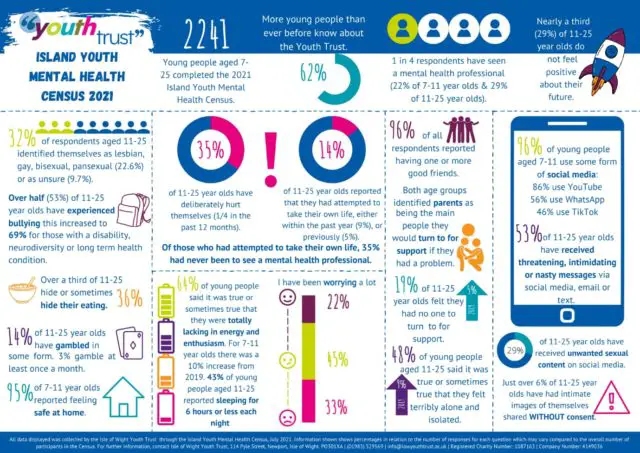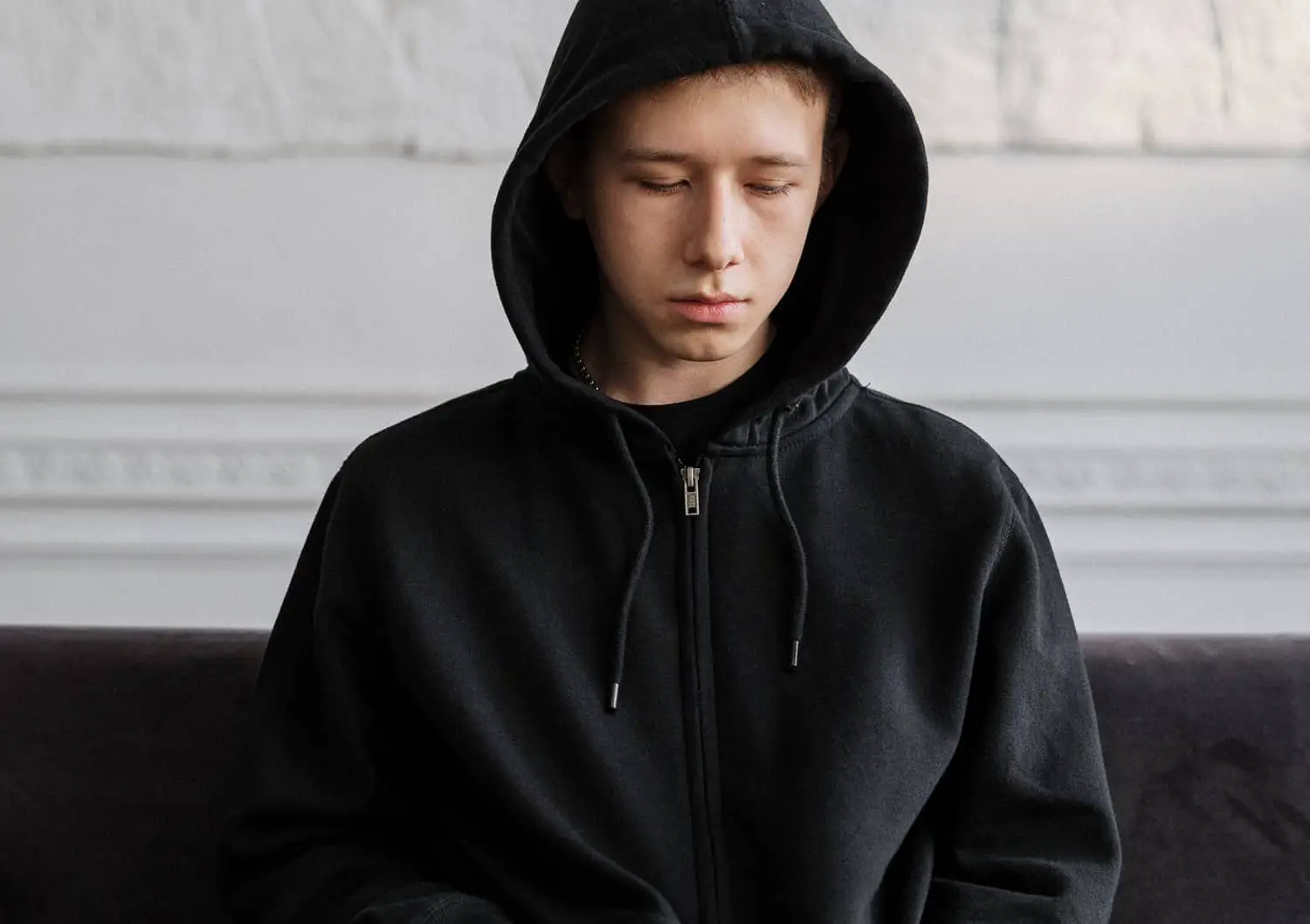A quarter of young people on the Isle of Wight do not feel positive about their future, three quarters have been worrying a lot.
Research undertaken by the Isle of Wight Youth Trust shows the significant impact Covid-19 has had on the mental health and wellbeing of children and young people on the Island.
Island Youth Mental Health Census
The Isle of Wight Youth Trust has been seeking the views and experiences of children and young people between the ages of 4 and 25 across the Island for many years. In 2021, the independent charity undertook it’s third Island Youth Mental Health Census.
A total of 2,241 responses were received from children and young people aged 7 to 25 from across the Island, taking the total number of survey responses received by the Trust in the past three years to over 9,000.
Tracking significant impact the pandemic has had
With the findings from this Census, along with those from the 2019 Census, and two Covid touch point surveys undertaken in 2020 and early 2021, it is now possible to track the significant impact the pandemic has had on the mental health and wellbeing of young people on the Island.
Key findings
Key findings of the research included:
- 74 per cent of 7–11-year-olds and 78 per cent 11-25 years olds have been worrying a lot – a 16 per cent and 6 per cent increase respectively from 2019
- 67 per cent of respondents have often felt unhappy, down or tearful (a 7 per cent increase from 2019)
- 64 per cent of respondents have felt lacking in energy and enthusiasm – for the 11–25-year-olds this figure was 69 per cent (a 12 per cent increase from 2019)
- 45 per cent of respondents have felt terribly alone and isolated (a 5 per cent increase from 2019). In 2021 8 per cent more 11–25-year-olds reported feeling terribly alone and isolated than they did 2019
- 36 per cent of respondents aged 11-25 hide or sometimes hide their eating habits
- 35 per cent of respondents aged 11-25 have deliberately hurt themselves (a 6 per cent increase from 2019)
- 30 per cent of respondents do not feel positive about themselves
- 29 per cent of 11–25-year-olds have received unwanted sexual content on social media. Just over 6 per cent of them have had intimate images of themselves shared WITHOUT consent
- 15 per cent of respondents aged 7-11 do not feel positive about their future, for the 11–25-year-olds, this figure almost doubles to 29 per cent
- 14 per cent of respondent aged 11-25 have attempted to take their own life (a 3 per cent increase from 2019)
Lonely and isolated
More young people are reporting feeling alone and isolated, they have been unable to spend time with their friends and peers, they have become increasingly reliant on damaging social media platforms for social interaction. They have also had more time to reflect.
Quarter aged 11-25 identified as LGBTQ+
Nearly a quarter of respondents aged 11-25 identified as LGBTQ+ in 2021 (an 11 per cent increase from 2019), a further 10 per cent of young people reported being unsure of their sexuality.
Pandemic threatens to scar the UK’s young people
The Trust’s Census findings are reflective of the findings of The Prince’s Trust NatWest Youth Index 2022 which presented an ‘irrefutable truth’ that the pandemic threatens to scar the UK’s young people for life unless action is taken now.
Our Island young people’s confidence in their future and happiness has been unquestionably damaged.
Youth Trust is committed to delivering a service
Under new leadership and as part of ambitions transformation plans, the Youth Trust is committed to delivering a service that remains accessible and relevant to the needs of young people aged 4-25 on the Island.
The findings of the Trust’s research and conversations with young islanders are helping prioritise need and helping to shape the organisations new strategy which will be launched in the upcoming months.
Dare: Increasing numbers seeking support for low mood, disordered eating and self-harm
Youth Trust CEO Jo Dare comments,
“These findings reflect the reasons children, young people and their families are reaching out for support from the Youth Trust. Whilst anxiety remains by far the most common concern young Islanders are presenting with to our Counsellors and Wellbeing practitioners, we are seeing increasing numbers of young people seeking support for low mood, disordered eating and self-harm.
“We remain committed to listening to the voices of children and young people on the Island and it is heartening to see more young people than ever before being aware of the work of the Trust. But, there is still much work to do to ensure all young people can access the right support, in the right place and at the right time.”
Click on image to see larger version

News shared by Michelle on behalf of Isle of Wight Youth Trust. Ed





